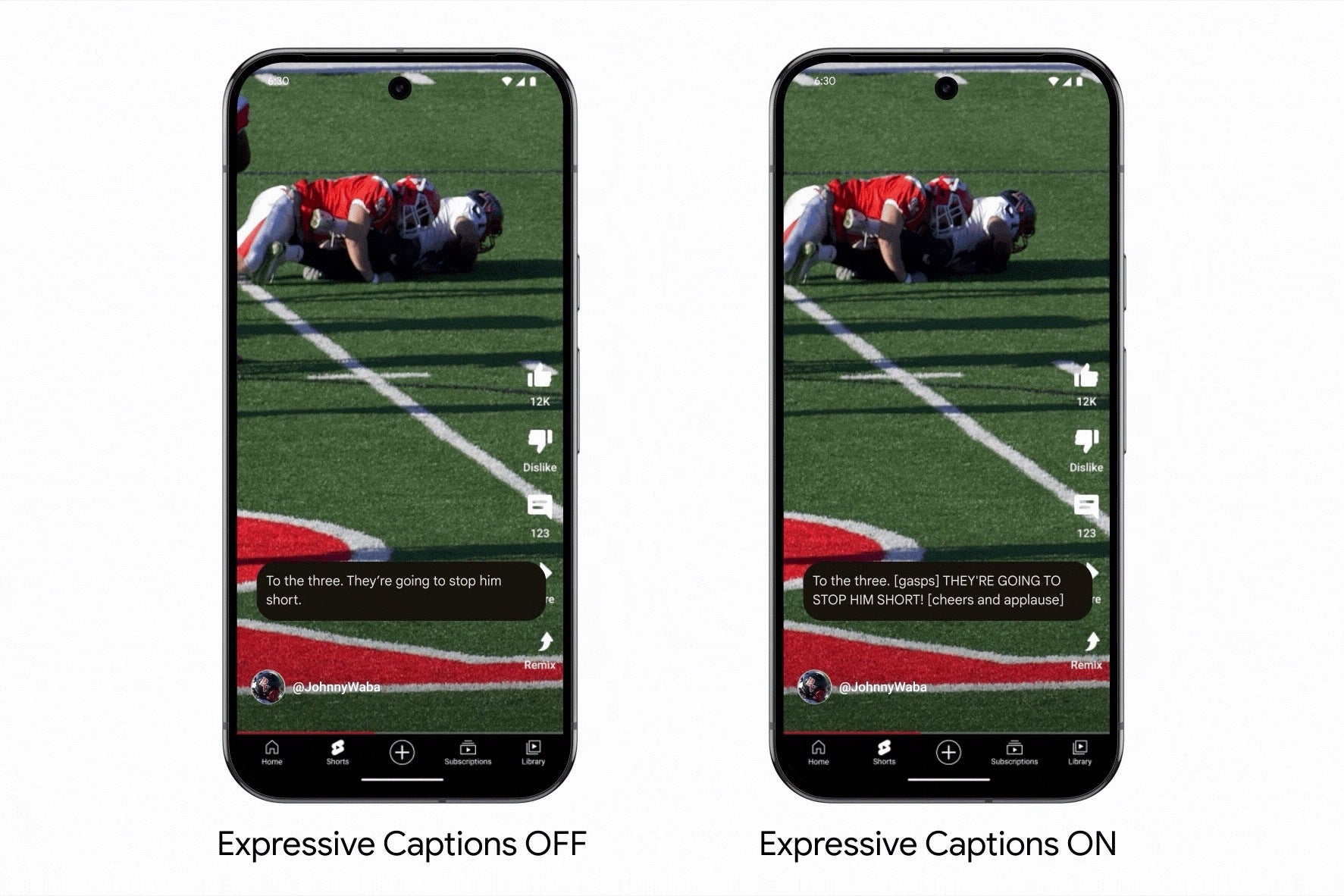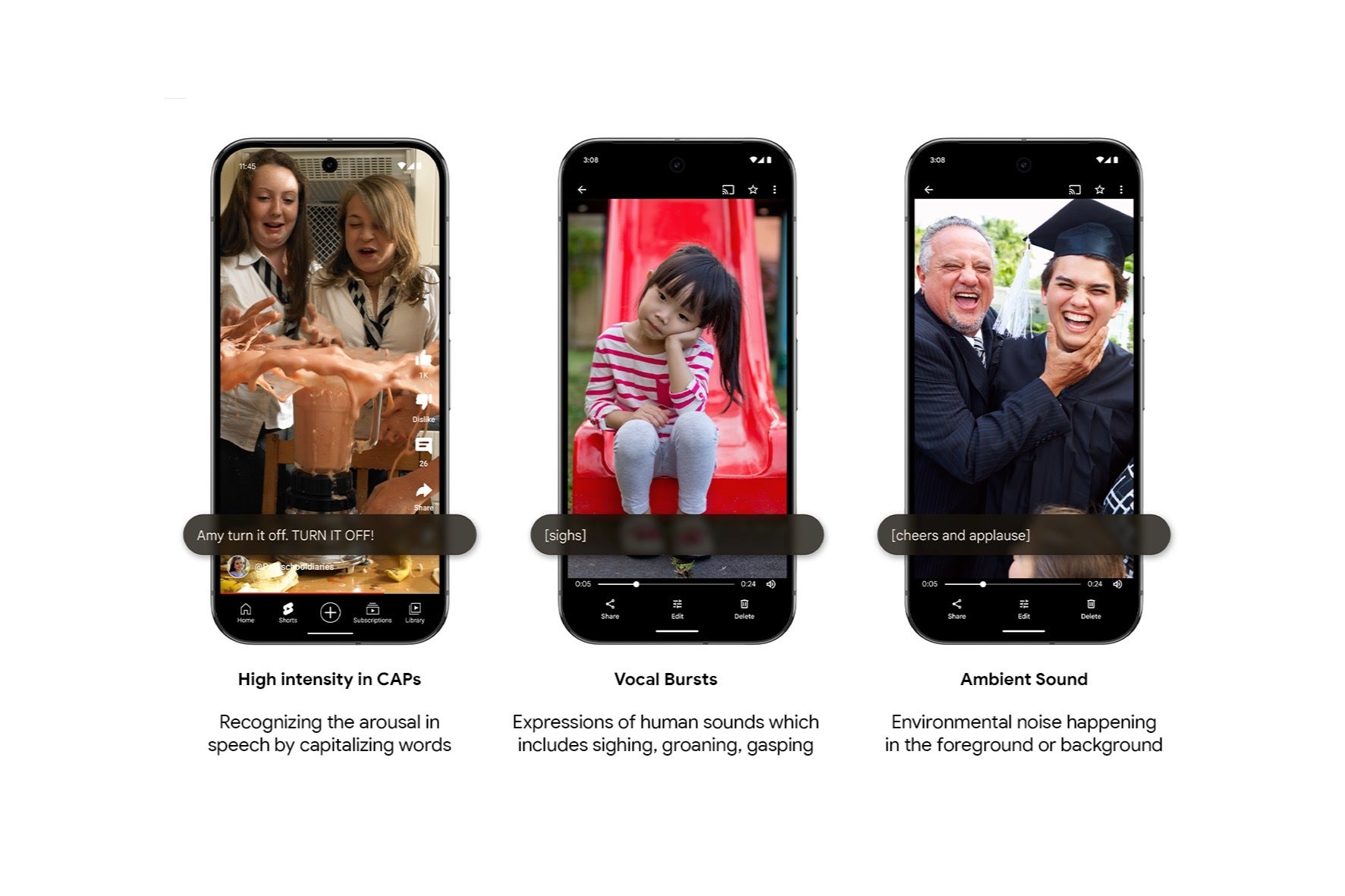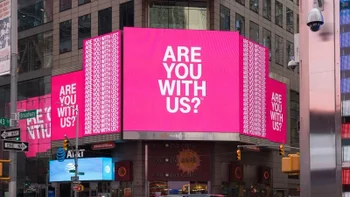Google unveils "Expressive Captions" for Android with AI-powered emotion and sound recognition

Image credit — Google

An example of 'Expressive Captions' turned ON vs OFF | Image credit — Google
One of the most interesting things about the new Expressive Captions is how it uses capital letters to show strong emotions. So, if your friend sends you a birthday message and shouts "HAPPY BIRTHDAY!" you'll see those words in all caps in the captions, just like how we've learned that when using all caps in texts means you're shouting. The feature can also pick up on things like sighs, gasps, and even clapping or cheering in the background, giving you a better sense of the whole scene.

How Android's new 'Expressive Captions' capture emotion | Image credit — Google
Expressive Captions are built right into the latest Android phones, so they work with pretty much any app where you might watch videos. The feature will be available starting today for any Android that is running Android 14 and above and that has the Live Caption feature turned on. For now, it will only be available in the U.S. in English.
This means you can use them for live streams, videos in your Google Photos, and even video messages from friends. And the best part is, they work instantly and even when you're offline, like on an airplane.
Google says that to create this super helpful feature, the teams at Android and Google DeepMind worked together to figure out how people watch videos without sound. They used special AI technology to not only capture the words but also turn them into captions that show emotion and include all those extra sounds.
I watch a lot of videos on my phone, so I'm pretty excited about Expressive Captions. Being able to see the emotion and hear the background sounds through the captions would make watching videos in noisy places a much better experience. I can't wait to see if this comes to other languages and regions soon.
Google says that to create this super helpful feature, the teams at Android and Google DeepMind worked together to figure out how people watch videos without sound. They used special AI technology to not only capture the words but also turn them into captions that show emotion and include all those extra sounds.
This is a big step forward in making sure everyone can enjoy online videos, no matter how well they can hear. It shows how AI can be used to make things better for everyone.
I watch a lot of videos on my phone, so I'm pretty excited about Expressive Captions. Being able to see the emotion and hear the background sounds through the captions would make watching videos in noisy places a much better experience. I can't wait to see if this comes to other languages and regions soon.
Follow us on Google News













Things that are NOT allowed:
To help keep our community safe and free from spam, we apply temporary limits to newly created accounts: